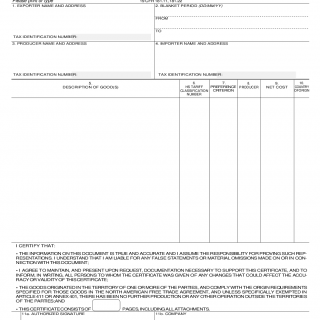Certificate of Origin
A Certificate of Origin (CO) is a document that certifies the country of origin of a product. It is used to determine the tariff treatment of imported products, aid in compliance with trade regulations, and much more.
The CO is required when exporting goods to a foreign country as proof of the product's origin. It can be issued by the manufacturer, producer, supplier or an authorized agent of the goods being exported.
The Certificate of Origin typically consists of information about the product and its origin, including the name and address of the manufacturer, the country of origin of the product, the date of production, and a description of the product. It may also include any additional information required by the importing country.
The advantages of the CO document are that it can help to reduce or eliminate import duties and taxes as well as facilitate the clearance of goods through customs. It is an important and necessary document for international trade.
Consequences of filling out the CO incorrectly include potential delays in customs clearance, fines or penalties from regulatory agencies, and loss of business due to non-compliance.
The legal force of the Certificate of Origin will depend on the regulations and requirements of the importing country. It is important to ensure that the CO adheres to the regulations and guidelines of the importing country's customs and regulatory authorities.

